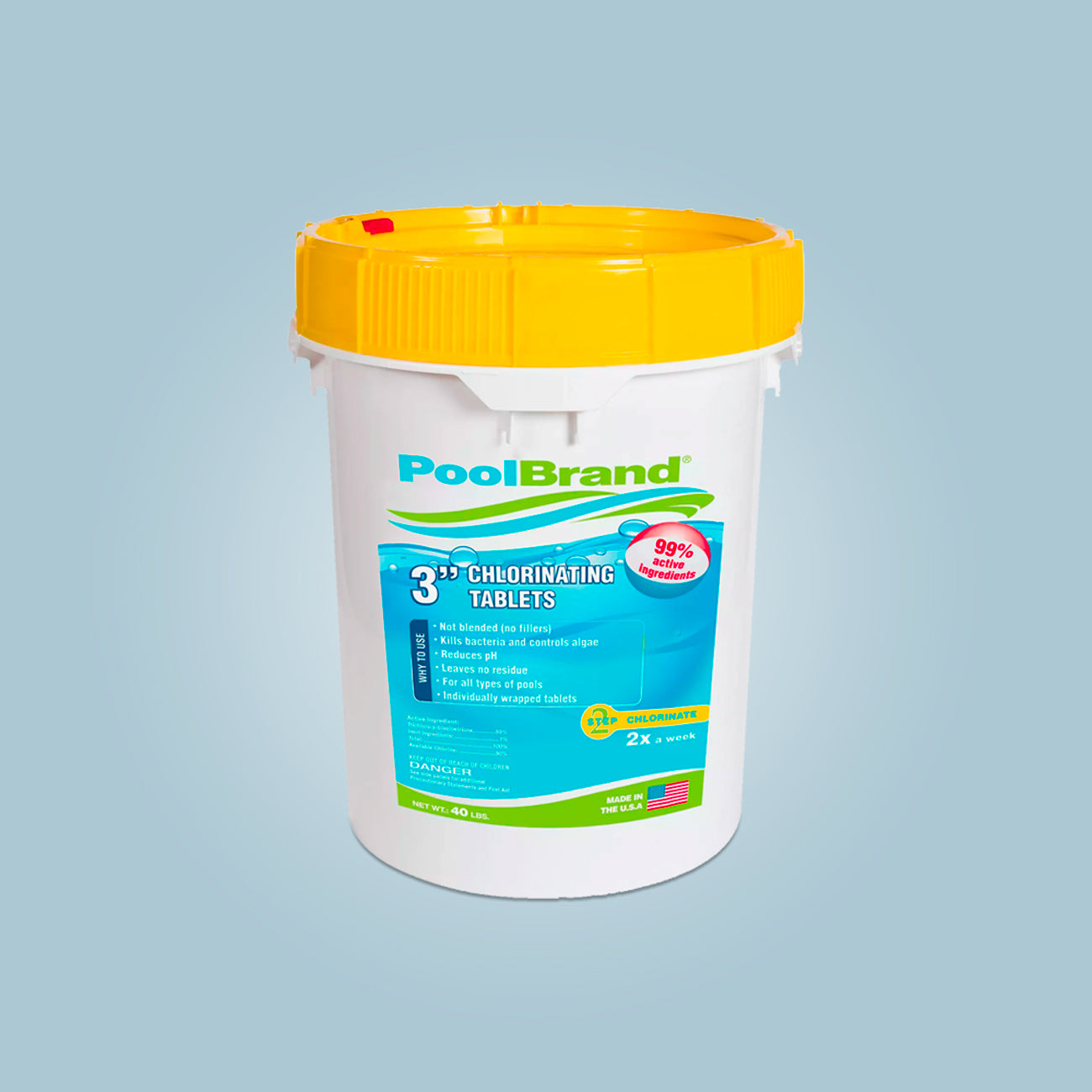Benefits of a Saltwater Pool
5 reasons why a saltwater pool system may be right for you
Who doesn’t love taking a nice cool dip in a pool on a hot day, or playing pool games with your friends at a barbeque, or just simply splashing around for fun with the kids? You might not enjoy any of those things if you are sensitive to chlorinated pool water. Without the right chemical balance, chlorinated pool water can cause irritation to your eyes, skin, and throat. Plus, the water can be tough on your swimwear—and if you have blond hair, actually turn it green!
But what if we told you that you can have a pool sanitization system that’s even lower maintenance with less unpleasant water? Saltwater pool systems have less irritating water and are a favorite of swimmers and pool owners alike, because they’re also easier to maintain and cut down costs over time. Let’s step through the basics of a saltwater pool system and review some of the major benefits they provide to pool owners and swimmers.
What is a saltwater pool?
What comes to mind when you hear the word “saltwater?” Often when people hear the word, they think of the salty tasting ocean water that leaves residue on the skin after it dries, but when it comes to swimming pools, “salt water” or “salt pool” refers to a pool that uses a salt chlorine generator for sanitization. The concentration of salt is far less than the ocean at only about 3,000ppm. It is far below the threshold detectable to human taste buds and will not leave any noticeable salty residue on skin and hair. (Some liken it to the saline solution used for contact lenses.)
It’s a common assumption that a saltwater pool doesn’t use chlorine for sanitization, but in fact it uses a salt chlorine generator to produce chlorine on-site by passing slightly salty water through two electrically charged metal plates, called a salt cell. Through electrolysis, the water (H2O), and salt (NaCl) are converted into chlorine and other molecules (we’ll save you the entire chemistry lesson). The chlorine that is produced kills bacteria and germs just as tablets or liquid do in a traditional pool. What’s even better is that after the chlorine is used up, the salt is converted back into NaCl and run through the salt cell again for the process to start again creating little to no chlorine maintenance.
Benefits of a Saltwater Pool
1. Gentler on Your Body and Clothing
Saltwater pools are gentler than traditional chlorine pools. Although the salt systems create the same type of chlorine found in traditional pools, there is far less chlorine in and the pool and it is a chemically stable environment. Couple that with the salt in the water, it creates a similar salinity of that in the human tear duct – therefore, no stinging eyes, skin, nose, or throat.
2. No Harsh Chlorine Smell
Because the chlorine in saltwater pools is created naturally, you won’t have the harsh chlorine smell found in traditional pools. Saltwater pools should have no detectable odor at all, and if there’s a chlorine smell it means there’s an imbalance.
3. Softer Water
The soft feeling that is often associated with saltwater pools is typically due to the low level of chlorine and total dissolved solids in the pool. Salt can be used as a water softener in your shower inside of the house, and it has the same effect on your pool water. Salt-chlorinated pool water is silkier and leaves your skin feeling less dried out than traditionally chlorinated pool water does.
4. Easier to Maintain
With a saltwater pool, the chlorine generator only adds chlorine as needed, so you don’t need to worry about adding chlorine regularly. Just add salt at the beginning of the swimming season and monitor the levels with bi-weekly tests. You still need to adjust for pH, alkalinity, calcium hardness, etc., but those too only need to be tested every two weeks instead of weekly or multiple times per week. And you won’t have to shock a saltwater pool as often, either. In fact, the only time it’s necessary is when a hard rain occurs, and the pool begins to turn green from algae.
5. Cost Less to Maintain
When you use a saltwater system instead of chemicals, you will no longer have to buy chlorine tablets, liquid chlorine, or as many shock treatments. Salt is much cheaper to purchase than chlorine as well. In fact, if your pool is properly maintained, it’ll cost less than $100 a year in salt and chemicals, whereas a traditional chlorine pool typically costs between $300 and $800. Also, the typical life span of a salt cell is three to seven years so that is not an annual expense.
Take It With a Grain of Salt
As you can see, saltwater pool systems offer pool owners and swimmers alike many benefits, although you may need to take those benefits with a grain of salt. Keep in mind, that with all the benefits there are also some disadvantages of saltwater pool systems you can read about further in the Resource Hub. After installing a saltwater generator though, pool owners rarely regret it. The soft water, gentleness to the body, the easier maintenance without the drawbacks of traditional chlorine are incredible benefits all pool owners can get behind.



